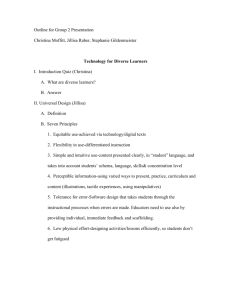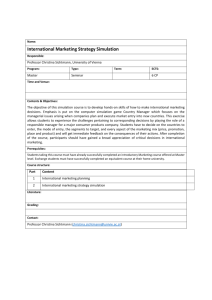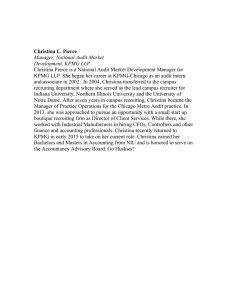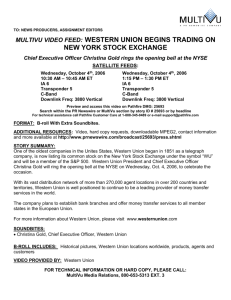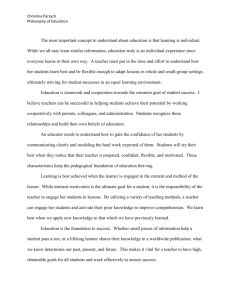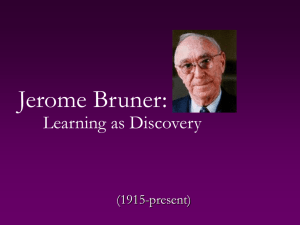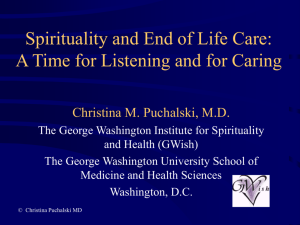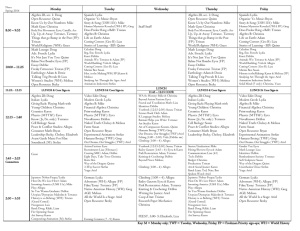Name: Medicine in Literature “Man Who” Handout 3 Date: Period 2
advertisement
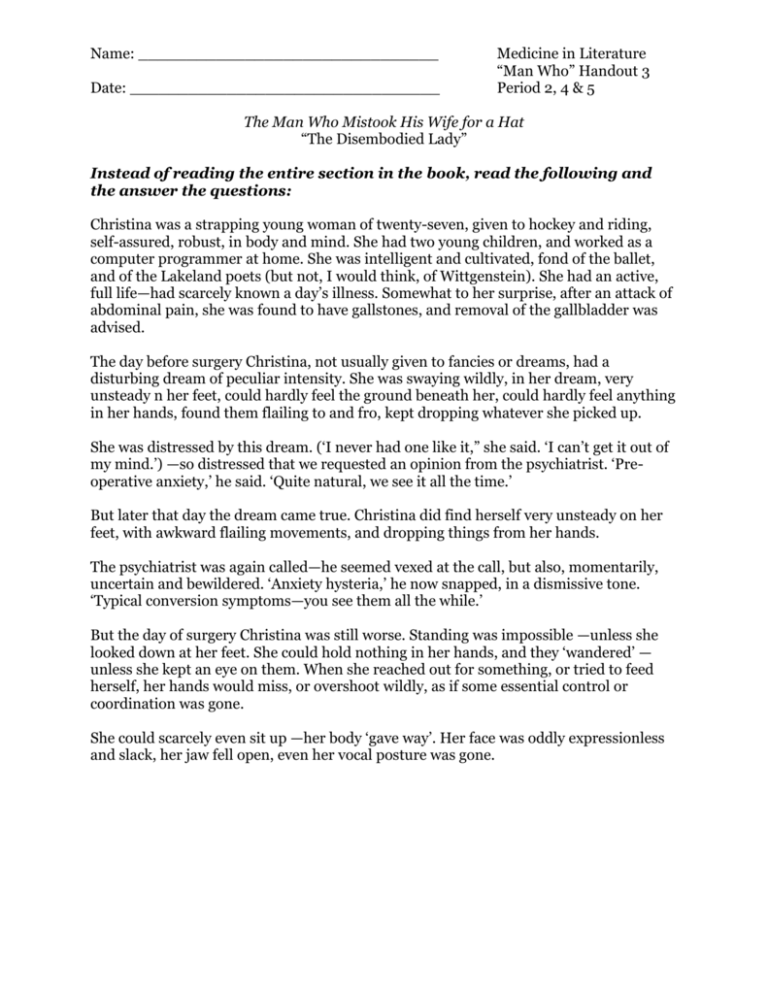
Name: _______________________________ Date: ________________________________ Medicine in Literature “Man Who” Handout 3 Period 2, 4 & 5 The Man Who Mistook His Wife for a Hat “The Disembodied Lady” Instead of reading the entire section in the book, read the following and the answer the questions: Christina was a strapping young woman of twenty-seven, given to hockey and riding, self-assured, robust, in body and mind. She had two young children, and worked as a computer programmer at home. She was intelligent and cultivated, fond of the ballet, and of the Lakeland poets (but not, I would think, of Wittgenstein). She had an active, full life—had scarcely known a day’s illness. Somewhat to her surprise, after an attack of abdominal pain, she was found to have gallstones, and removal of the gallbladder was advised. The day before surgery Christina, not usually given to fancies or dreams, had a disturbing dream of peculiar intensity. She was swaying wildly, in her dream, very unsteady n her feet, could hardly feel the ground beneath her, could hardly feel anything in her hands, found them flailing to and fro, kept dropping whatever she picked up. She was distressed by this dream. (‘I never had one like it,” she said. ‘I can’t get it out of my mind.’) —so distressed that we requested an opinion from the psychiatrist. ‘Preoperative anxiety,’ he said. ‘Quite natural, we see it all the time.’ But later that day the dream came true. Christina did find herself very unsteady on her feet, with awkward flailing movements, and dropping things from her hands. The psychiatrist was again called—he seemed vexed at the call, but also, momentarily, uncertain and bewildered. ‘Anxiety hysteria,’ he now snapped, in a dismissive tone. ‘Typical conversion symptoms—you see them all the while.’ But the day of surgery Christina was still worse. Standing was impossible —unless she looked down at her feet. She could hold nothing in her hands, and they ‘wandered’ — unless she kept an eye on them. When she reached out for something, or tried to feed herself, her hands would miss, or overshoot wildly, as if some essential control or coordination was gone. She could scarcely even sit up —her body ‘gave way’. Her face was oddly expressionless and slack, her jaw fell open, even her vocal posture was gone. Do you think Christina is suffering from anxiety or that she has a real neurological problem? ____________________________________________________________ ____________________________________________________________ ____________________________________________________________ What evidence in the text supports your answer? ____________________________________________________________ ____________________________________________________________ ____________________________________________________________ If Christina has a true neurological disorder, do you think it is in her brain or in her nerves? ____________________________________________________________ ____________________________________________________________ ____________________________________________________________ Is there any information in the excerpt that makes you think so? ____________________________________________________________ ____________________________________________________________ ____________________________________________________________ Design a quick test doctors could perform to determine if her nerves are really damaged or if she is simply nervous. ____________________________________________________________ ____________________________________________________________ ____________________________________________________________ If her brain is damaged, do you think her motor cortex or her cerebellum is the likely culprit? Can you find anything specific in the text that that makes you think so? ____________________________________________________________ ____________________________________________________________ ____________________________________________________________
